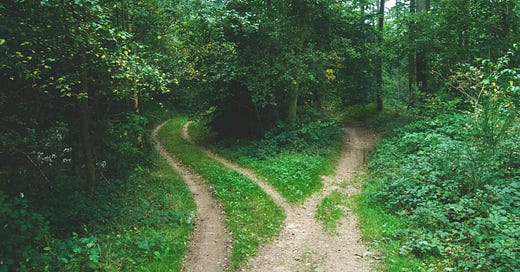You wouldn't ask a cheetah how to go fast.
On clarity, purpose, and the how to get in touch with the things we automatically know.
Hey! It’s been awhile. I was traveling, and unraveling, and dealing with a flooded kitchen, and celebrating the sacred bonds of love. I’ve brought you something long but thoughtful to make up for my absence.
On Clarity
Last month, I delivered a talk about clarity. I felt like just about the last person on earth qualified to speak on the topic, because I …
Keep reading with a 7-day free trial
Subscribe to HALF WILD to keep reading this post and get 7 days of free access to the full post archives.




